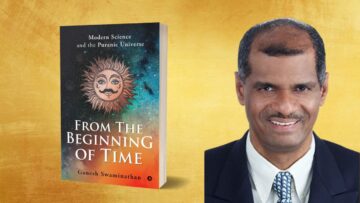Centre for Ayurveda Studies (CAS) is a Center for advancing the wisdom of Ayurveda globally with a focus on lifestyle, well-being and nutrition. At CAS, we seek to nurture
- Ayurveda practitioners into global well-being entrepreneurs
- Yoga Teachers from around the world into incorporating Ayurveda in their practice & teachings
- Indian Chefs into global Plant Based & Ayurvedic nutrition entrepreneurs
- CAS organises talks, retreats, seminars, workshops and conferences.
The Center has evolved from the Center for Indigenous Sustainability (CIS) which began its work in July 2020. As a first step we issued a call for short term research fellowships to fulfil our first year plan, which was to stimulate and generate original inquiry into health and medicine with an emphasis on Ayurveda. The call brought in 23 applicants. We shortlisted 11, conducted interviews and awarded short term research fellowships.
In 2023, we received the completed research reports.
- Dr. Rachana Bhangaonkar and Ms. Anushree Gokhale examined sustainability in traditional food practices.
- Sushant Bharti explored the diversity of food offerings in temples in Vrindavan.
- Dr. Kamini Gogri investigated sacred spaces and food practices within the Jain community of Kutch.
- Shalini Mahapatra focused on the anthropology of Jagannath Mahaprasad.
- Nishanth Gurav researched ethnobotany in sacred groves in Chhattisgarh.
- Dr. Shagufa Kapadia studied food moralities among urban youth in Gujarat.
AYUTALKS
The Ayutalks series included 14 sessions which covered a comprehensive array of topics related to health and wellbeing, incorporating both traditional Ayurvedic wisdom and modern scientific perspectives. From understanding the qualities of food according to Ayurveda to exploring the relationship between nutrition and stress management, these talks offered valuable insights into holistic health practices. The inclusion of topics like precision nutrition, global trends in traditional Indian medicine research, and the importance of Ayurvedic treatises indicates a blend of ancient wisdom and contemporary knowledge.
Of these, the talks presented by Dr. Manjiri Nadkarni, Dr. Suhas Kshirsagar, and Dr. Manas Kshirsagar highlight various aspects of holistic nutrition:
Dr. Manjiri Nadkarni discusses traditional Ayurvedic food preparation techniques and their impact on nourishment. She emphasises the importance of methods like soaking, sprouting, and grinding in enhancing nutrient density and digestibility.
Dr. Suhas Kshirsagar introduces Chrono Nutrition, focusing on the timing of meals. He suggests that consuming calories within specific time windows, such as with intermittent fasting, can positively influence health, particularly in managing cardio-metabolic disorders.
Dr. Manas Kshirsagar promotes the consumption of a diverse range of colourful foods. Each colour corresponds to different health benefits, including improved vision, reduced inflammation, and decreased risk of chronic diseases. Eating a variety of colours supports overall health and strengthens the immune system.
Together, these talks advocate for a comprehensive approach to nutrition, considering not only the composition of food but also its preparation methods, timing of consumption, and diversity of ingredients. By incorporating these principles into dietary habits, individuals can optimise their health and well-being.






